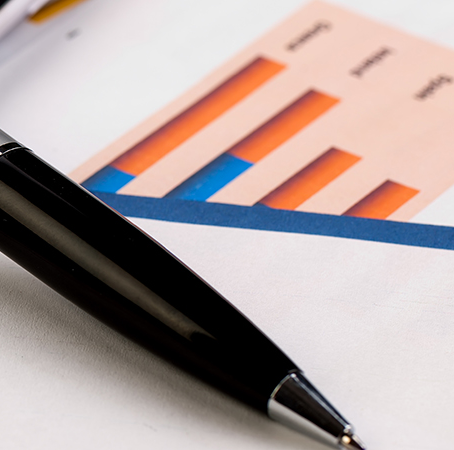A surprisingly large trade surplus in June
According to Statistics Indonesia (BPS), Indonesia's trade surplus grew significantly from USD0.44bn in May to USD3.4 bn (+690% MoM) in June, mainly driven by lower imports. This exceeded our and the consensus estimates of USD3.19 bn and USD1.16 bn, respectively. However, on an annual basis, the trade surplus exhibited a weaker performance, shrinking by -32.86% YoY from USD5.15 bn in the same month of the previous year. Indonesia has maintained a positive trend in international trade since May 2020, resulting in 38 consecutive months of trade surplus. The thick trade surplus will support foreign exchange (forex) reserves and contribute to economic growth. The additional forex reserves are essential for maintaining the stability of the Rupiah. We expect the average exchange rate to be Rp14,980/USD, while economic growth is projected to reach 5.0% YoY this year.
Exports decrease on global demand slowdown
Total exports dipped by -21.18% YoY to USD20.61 bn in June-23, which was lower than the previous month's (+0.96% YoY). Besides, this figure was below our and consensus estimates of -19.12% YoY and -17.27% YoY, respectively. On a monthly basis, exports contracted by -5.12% MoM with oil and gas, and non-oil and gas imports decreased by -3.64% MoM and -5.17% MoM to USD1.26 bn and USD19.34 bn, respectively. The main country destinations of non-oil and gas exports in June-23 were China at USD4.58 bn (-4.04% MoM), followed by the United States at USD1.95 bn (-4.59% MoM), India at USD1.66 bn (9.24% MoM) and Japan at USD1.44 bn (-17.82% MoM). Based on the commodities group from 2-digit HS, the contributors toward weaker exports came from Mineral fuels at -11.54% MoM (-USD441.3 mn); Precious metals and jewelry/precious stones at -41.41% MoM (-USD238.3 mn); Ores, slag, and ash at -34.64% MoM (-USD224.5 mn); and Nickel and articles thereof at -41.33% MoM (-USD285.9 mn). We believe the monthly decline in exports is affected by weaker demand in major trading partners such as China, the United States, and Japan. Besides, June has fewer working days compared to May. Meanwhile, the yearly decline in exports is mainly driven by moderating commodity prices. The main commodity exports in June, such as CPO and coal, decreased by -26.27% YoY and -66.80% YoY to USD3,751/MT and USD128.1/ton, respectively.
Imports dip with raw material purchaces fall
The total imports shrank by -18.35% YoY and -19.40% MoM to USD17.15 bn, which was below our forecast and consensus of -14.5% YoY and -3.5% YoY, respectively. In detail, oil and gas, and non-oil and gas imports decreased by -29.12% MoM and -17.73% MoM to USD2.22 bn and USD14.92 bn, respectively. Raw/intermediary goods continued to dominate the import sector, accounting for 73.63% of the total import. From the selected non-OG sector, the biggest contributor (13.89% of total import) came from machinery/mechanical appliances and part thereof (HS 84), which also decreased by -16.48% MoM to USD2.58 bn. We think the fall in imports could signal waning domestic spending although it was also affected by shorter working days in June. The substantial slowdown in raw materials imports could point to slower growth momentum in the coming months. Besides, the main import commodities, such as oil, decreased by -2.21% MoM and -33.24% YoY to USD70.6/BBL.
DHE is signed by president
The government officially requires exporters who have foreign exchange proceeds from the export of natural resources with an export value on export customs notifications of a minimum of USD 250,000 or its equivalent to include 30% of them in the financial system. This regulation is stated in Government Regulation (PP) Number 36 of 2023, regarding the Export Proceeds of Foreign Exchange from the Exploitation, Management, and/or Processing of Natural Resources (DHE). The PP stipulated by President Joko Widodo on July 12, 2023, will come into effect on August 1, 2023, replacing PP No. 1 of 2019. We think the DHE regulation could strengthen the foreign exchange reserves. The additional foreign exchange is useful in maintaining the stability of the Rupiah amidst a global economic slowdown and a narrower trade balance surplus. However, the DHE regulation has the potential to disrupt exporters' cash flow. Therefore, the government should create instruments to anticipate the need for exporters' emergency funds.
Anticipate the EUDR policy
The European Union Deforestation Regulation (EUDR) officially entered into force on June 29, 2023, and will be effective from December 30, 2024. The EUDR is a regulation aimed at promoting the role of the European Union (EU) in implementing Environmental, Social, and Good Governance (ESG) practices in global business operations, particularly in the efforts to reduce deforestation and forest degradation worldwide. Any products seeking to enter the EU must provide a due diligence statement on deforestation. We believe that the EUDR policy could potentially disrupt Indonesia's plantation and forestry sector export performance. Therefore, the government should engage in diplomatic efforts to ensure that the EUDR does not become a non-tariff barrier for Indonesia's exports. Additionally, the government must prepare its own due diligence statement on deforestation.
















